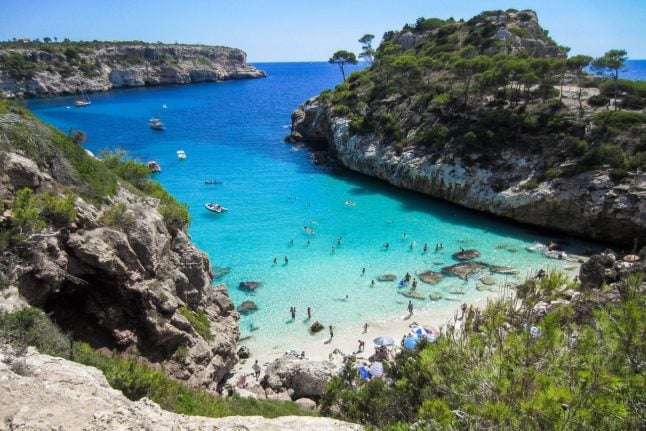Currently all arrivals to Spain must present a negative Covid-19 test taken less than 72 hours before travelling, however Spanish tourism authorities are hoping that this will not be the case by the time spring arrives.
Spain’s national tourism agency, Turespaña, will introduce a new 'Travel Safe' campaign which aims to encourage holidaymakers to return to the country, while giving them all the latest safety information and advice.
The new campaign was presented on December 3rd by the Minister for Industry, Trade and Tourism Reyes Maroto and the Director General of the national tourism board Turespaña, Miguel Sanz.
“With this campaign, we want to position the Spain tourism brand as an influencer in the security of journeys and to contribute to generating confidence among tourists to come to our country again,” Maroto told the International Travel & Health Journal.
A new section on the spain.info website is currently being created for the campaign which will feature information on matters such as local restrictions or restaurant capacity. It will also include an interactive map of Spain where tourists can find the details on anti-Covid measures wherever they choose to holiday in the country.
The campaign is estimated to cost around €2million and is expected to run for as long as there are coronavirus prevention measures in place.
Read Also: How Spain plans to bring tourists back in 2021
The Balearic Islands have been one of the main proponents of the campaign, with their tourism minister Iago Negueruela saying that safe tourism should start “from the end of March.”
He also explained that “there is the task of positioning, selling and explaining to the world that the Balearic Islands are a safe destination.”
Negueruela has already met with Sanz and has started preparing the promotional campaigns and positioning the Balearic Islands as a safe holiday destination.
Sanz agreed with Negueruela saying that “it is necessary that the tourism season starts as early as possible,” next year.
For this to happen, the epidemiological situation must be stabilised, the Turespaña head explained.
“First we have to generate trust, this in turn will generate sales and arrival of tourists,” he concluded.
Read Also: The stats that show the true devastation Covid has brought to Spain's tourism industry
Thanks to the recent announcements of successes of several vaccines, the islands have seen bookings jump for next year.
According to ABTA (The Travel Association in the UK), bookings jumped by 30 percent, just after the UK government announced the approval of the Pfizer/BioNTechvaccine last week.
The Majorca Daily Bulletin reported the response to the vaccine was much better than forecast. A local tour operator told the website: “Most of the reservations were made for summer 2021, but with discounts on offer for March, April and May we are predicting that the tourist season will be better in 2021, even although it will still be around 50% less than 2019”.
Spanish package holidays, both to the Balearics and the mainland for summer 2021 are already on offer from companies such as Jet2 and Thomas Cook and are in high demand, reported WTX News.



 Please whitelist us to continue reading.
Please whitelist us to continue reading.
Member comments